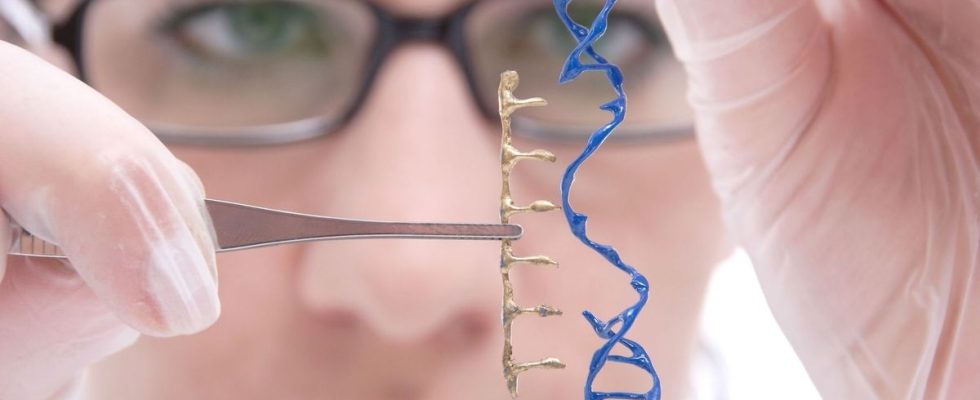Published on
Updated
Reading 3 min.
A week after US authorities, the European Medicines Agency approved the first drug using CRISPR/Cas9, a new gene editing technology. Casgevy is indicated for the treatment of transfusional beta-thalassemia and severe sickle cell disease.
Casgevy is the first drug to use new genome editing technology: Crispr, which was awarded the Nobel Prize in Chemistry in 2020. This first marks a real breakthrough in the field of gene therapy.
Two diseases linked to genetic mutations that affect hemoglobin
Beta thalassemia and sickle cell disease are caused by genetic mutations that affect the production or function of hemoglobin, the protein found in red blood cells that carries oxygen throughout the body.
Sickle cell anemia is the most common genetic disease in France (one child affected for every 1,736 births). This prevalence is much higher in the overseas departments (1/499) and in the Paris region (1/765) where populations at risk are concentrated. The red blood cells are deformed, sickle-shaped, have difficulty circulating in the blood and can sometimes get blocked in the blood vessels, causing very painful attacks. For most patients, the management of sickle cell disease revolves around prevention of complications and regular medical monitoring.
For both diseases, the last resort treatment is bone marrow transplantation. But not all patients have access to it.
A new kind of gene therapy
Casgevy, a cellular gene therapy, is approved for the treatment of sickle cell disease in patients 12 years of age and older with recurrent vaso-occlusive crises. Casgevy is the first FDA-approved therapy using CRISPR/Cas9, a type of genome editing technology.
CRISPR/Cas9 technology is likened to “molecular scissors” capable of adding, removing or modifying genetic material at a specific location in the genome of cells.
Once the bone marrow stem cells are collected from the patient, CRISPR gene editing will modify them so that it can ensure the production of fetal hemoglobin (HbF)
These modified cells are then reinjected into the patient, which will lead to an increase in HbF production, thus providing functional hemoglobin.
Effectiveness demonstrated in two preliminary studies
Two ongoing studies in patients aged 12 to 35 with a single group have led the European authorities to validate the marketing of this revolutionary treatment:
- In the first, 42 patients, including 13 adolescents, suffering from transfusional beta-thalassemia and having received a single dose. Among these 42 patients, 39 had not had a transfusion for at least a year;
- In the second trial, 29 patients, including six adolescents, suffering from severe sickle cell disease, received one dose. Among these 29 patients, 28 were free from episodes of vaso-occlusive crises (VOC) for at least 12 consecutive months. Characterized by severe pain and organ damage, VOCs are the leading cause of emergency room visits and hospitalizations for patients with sickle cell disease.
The most common side effects are low white blood cell counts, including febrile neutropenia, low platelets, liver disease, nausea, vomiting, headache, and mouth sores. These events are caused by the drugs needed by the modified blood cells to engraft and replace the unmodified stem cells.
Long-term follow-up is planned
Casgevy is recommended for conditional marketing authorization, aimed at facilitating rapid access to medicines that meet an unmet medical need, if the benefit to patients outweighs the risk inherent in the fact. that not all data is yet available.
However, this is a new technology whose long-term effects are unknown. As such, the company will have to submit by August 2026 the final results obtained in the ongoing trials, as well as the results of the ongoing long-term follow-up study. Patients treated with Casgevy will finally be followed for 15 years, in order to monitor the long-term effectiveness and safety of this new type of gene therapy.
